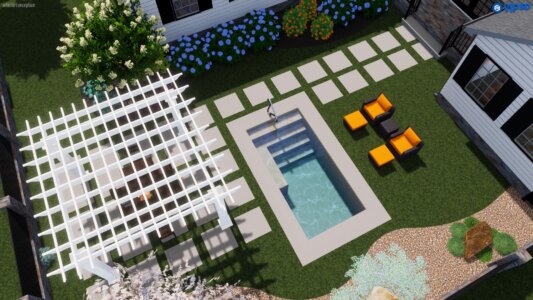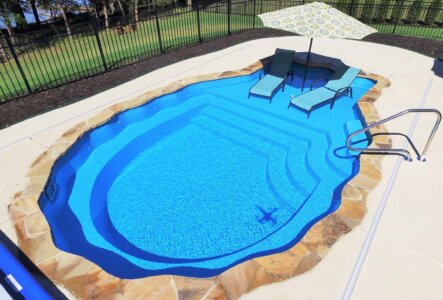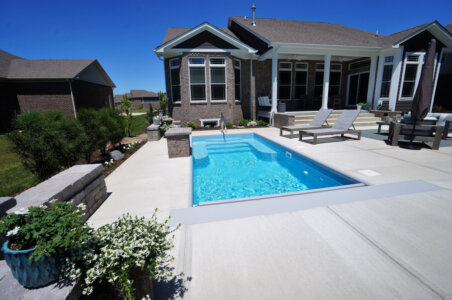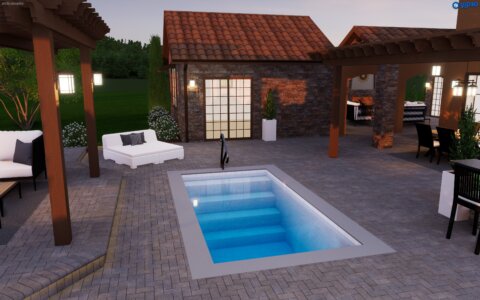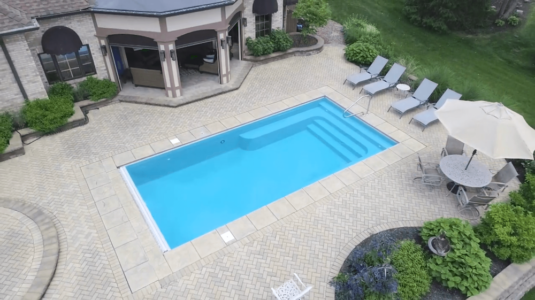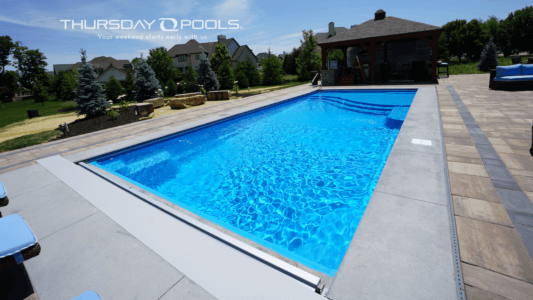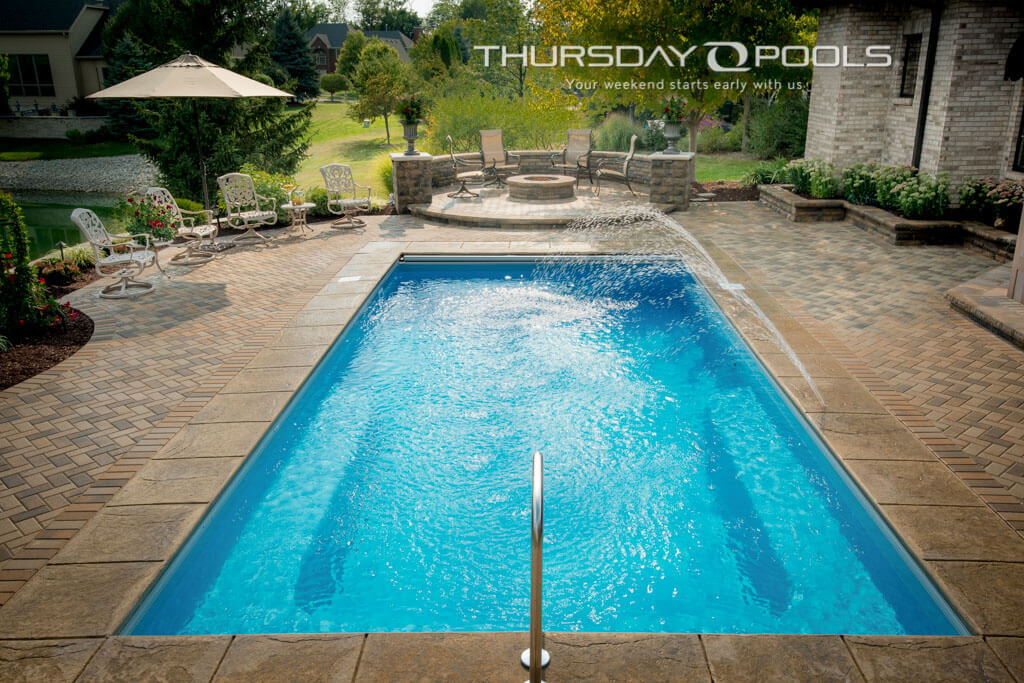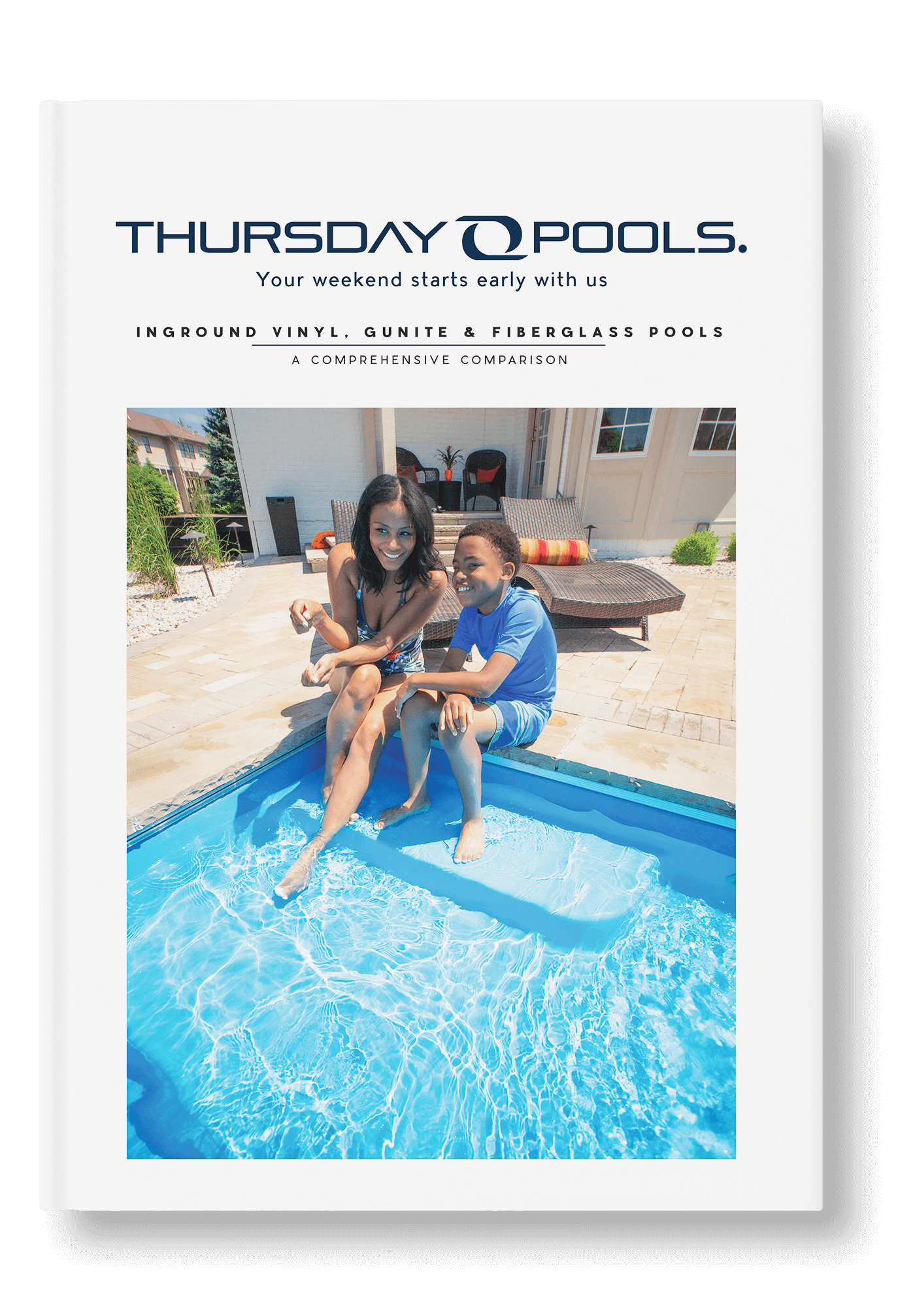LSI and Fiberglass Pool Chemistry
The Langelier Saturation Index (LSI) is a formula that the gunite pool industry adopted to determine water balance and predict whether water will form calcium scale or dissolve it. Some pool industry professionals insist you should focus strictly on LSI balance, but for fiberglass, that advice can damage your pool. However, an LSI calculator can be helpful for fiberglass pool owners as a secondary tool in keeping critical factors of water chemistry within fiberglass-safe target ranges.
What Are Fiberglass-Safe Water Chemistry Target Ranges?
- pH: 7.2 to 7.4
- Total Alkalinity (TA): 80 to 120 ppm
- Free Chlorine (FC): 1 to 3 ppm
- Cyanuric Acid (CYA): 30 to 50 ppm
- Calcium Hardness (CH): Less than 120 ppm (NEVERt add calcium)
- Total Dissolved Solids (TDS): Less than 1,500 ppm (or up to 1,000 ppm above your salt level)
Always use a stain and scale control or chelating and sequestering agent as part of routine care and for winterization. Never use calcium hypochlorite or any calcium-adding products in fiberglass pools. When pH, calcium, and chlorine are all elevated at the same time, the risk of damage to the fiberglass pool gelcoat increases significantly. If only one or two are high, the risk of damage is lower but still present.
What is LSI?
The Langelier Saturation Index was developed in the 1930s by Dr. Wilfred Langelier to help cities predict whether water would deposit calcium carbonate scale inside pipes or dissolve it. The concept later made its way into the pool industry because it’s an easy way to check water chemistry with respect to calcium carbonate.
Simply put, LSI looks at pH, alkalinity, temperature, and calcium levels together and estimates whether water is likely to scale (represented with a positive-number LSI) or dissolve calcium (negative LSI).
Why is LSI Secondary for Fiberglass Pools?
Concrete and plaster pools contain calcium in their walls. If the water is too “hungry” (what pool pros call “aggressive water”), it pulls calcium out of those surfaces, causing rough spots or etching.
Fiberglass pools are different. The shell doesn’t contain calcium, so aggressive water won’t leach anything from it. Instead, the bigger risk is the opposite: too much calcium in the water. When high calcium combines with high pH or high chlorine, it can cause discoloration on the gelcoat. That’s why adding calcium to “fix” LSI—something that works for concrete—can actually damage fiberglass.
How Do I Use LSI in a Fiberglass-Safe Way? Practical Steps to Take
Think of LSI as a final check after you’ve set your fiberglass targets.
- Dial in the targets first: pH between 7.2 and 7.4, TA between 80 and 120 ppm, FC at 1 to 3 ppm, CYA at 30 to 50 ppm, and CH less than 120 ppm.
- Check LSI last: Aim for roughly -0.30 to +0.30.
-
- In cold water, from late fall through winter, a slightly negative LSI is acceptable.
- Do not push water chemistry factors outside of fiberglass-safe ranges in order to hit perfectly balanced 0.0.
- If LSI is too positive and water is scale-prone:
-
- Bring pH toward 7.2 to 7.4 without overshooting high.
- Confirm TA is within 80 to 120 ppm.
- Do not add calcium. Keep using your stain and scale control.
- If LSI is too negative and water is aggressive:
-
- Make sure pH is not below 7.2 and adjust gently.
- Bring TA within 80 to 120 ppm.
- A cold-weather LSI total slightly below -0.30 can be acceptable for fiberglass.
Looking for more information on water chemistry and fiberglass pool maintenance? Explore Thursday Pools’ Ultimate Fiberglass Pool Maintenance Guide.
And if you’re ready for personalized advice or want to talk about water chemistry ranges with a local pool pro, connect with an independent Thursday Pools dealer near you.
Frequently Asked Questions About LSI
My LSI is +0.5 but my pH is 7.6. Should I add calcium to bring it down?
No. For fiberglass, keep calcium hardness levels less than 120 ppm. Lower pH toward 7.2 to 7.4 and verify total alkalinity between 80 and 120. Keep using a stain and scale control product. Calcium may fix LSI for concrete pools, but it causes more harm than good in fiberglass.
What if my fill water is hard?
Use a stain and scale control product and manage pH and total alkalinity. The goal is to prevent calcium fallout onto the gelcoat, not raise calcium.
Can I “balance for LSI” during winter?
You can allow a slightly negative LSI in cold water, but always stay within fiberglass-safe pH and total alkalinity ranges, keep calcium hardness less than 120 ppm, and use additional stain and scale control at pool closing.
Do I need to calculate LSI every time I test my pool water?
No. Focus first on fiberglass-safe water chemistry ranges for pH, alkalinity, chlorine, and calcium.
Why is calcium hardness so important for fiberglass pools?
Fiberglass shells don’t need calcium for structural protection, unlike concrete pools. Too much calcium in fiberglass pools leads to scale, discoloration, and rough surfaces, so always keep levels less than 120 ppm. If you have hard source water and your calcium is high, be sure to use a stain and scale control product.
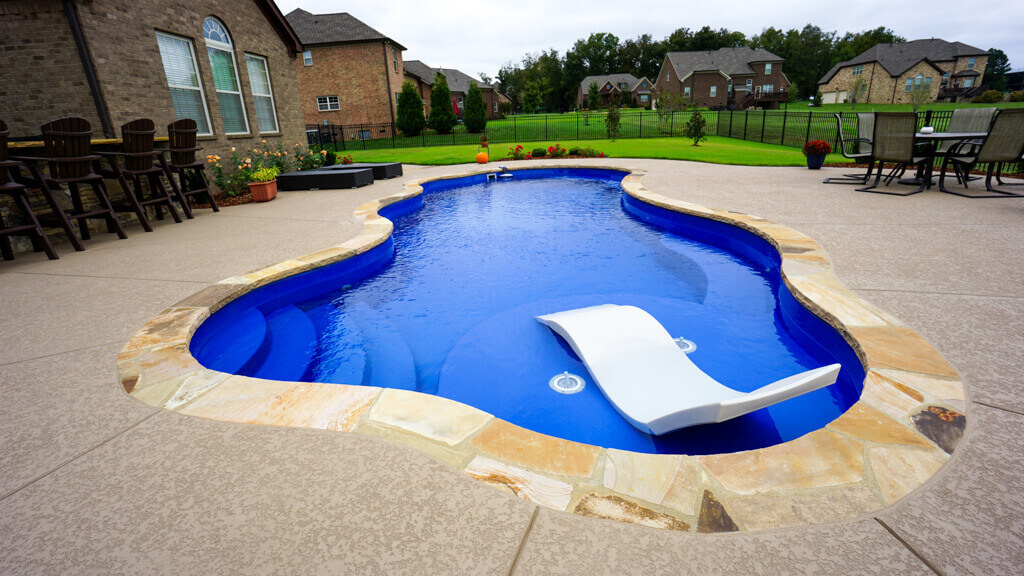
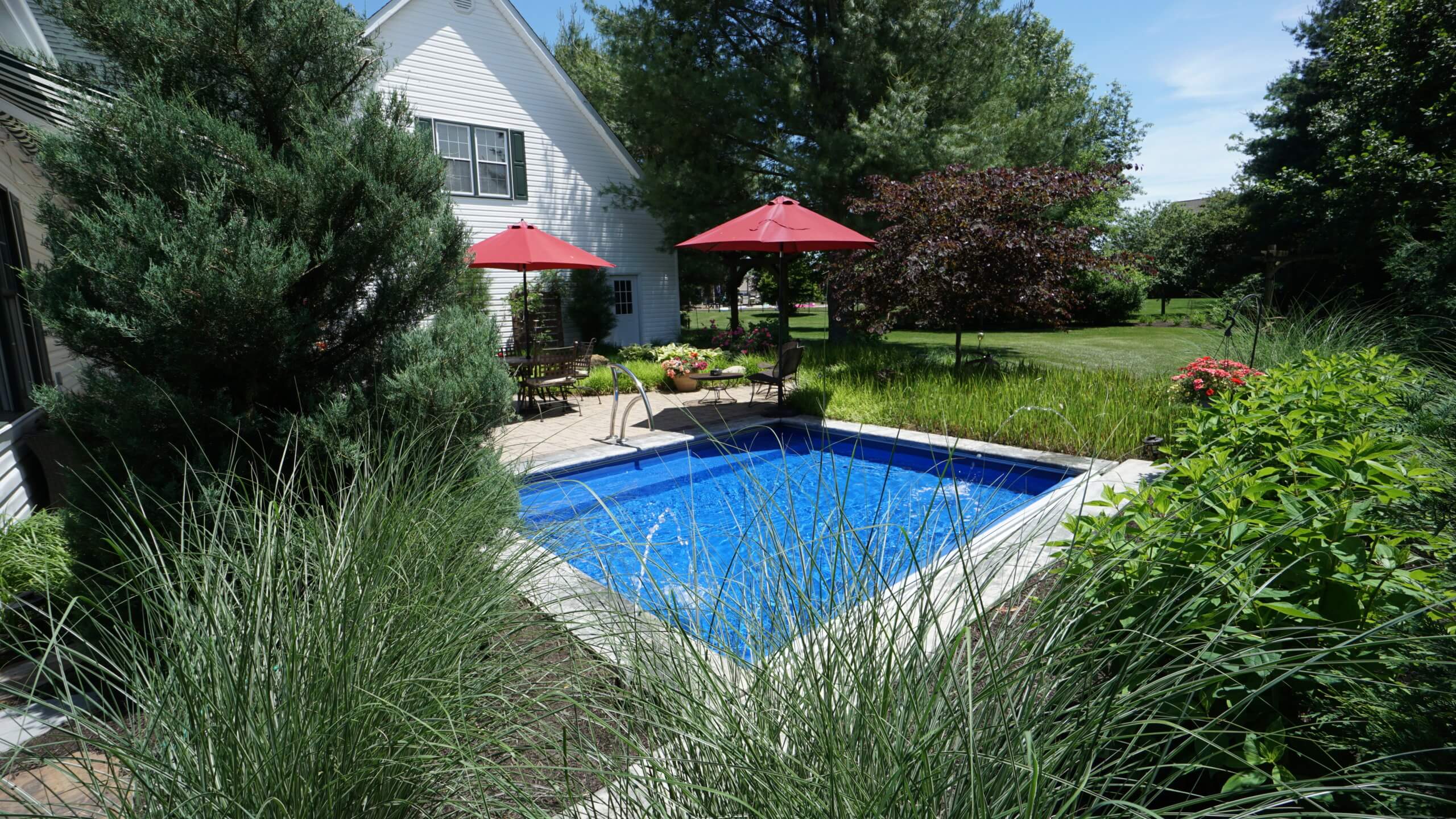
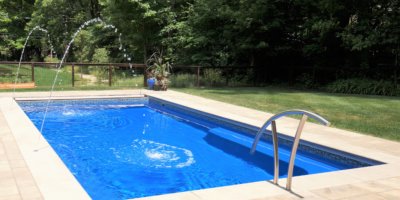
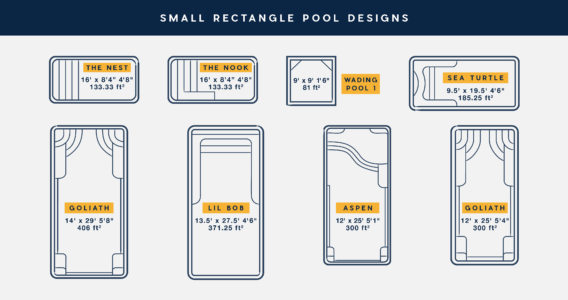
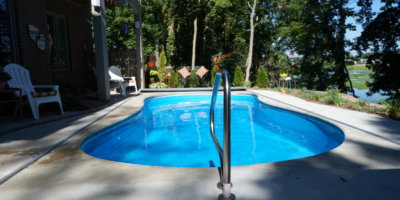
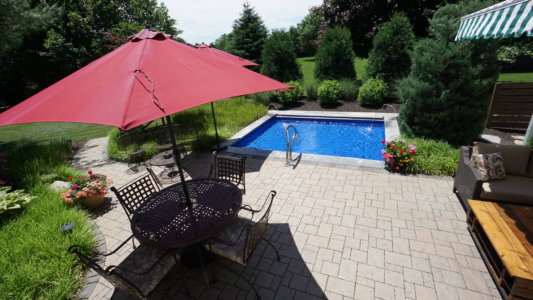
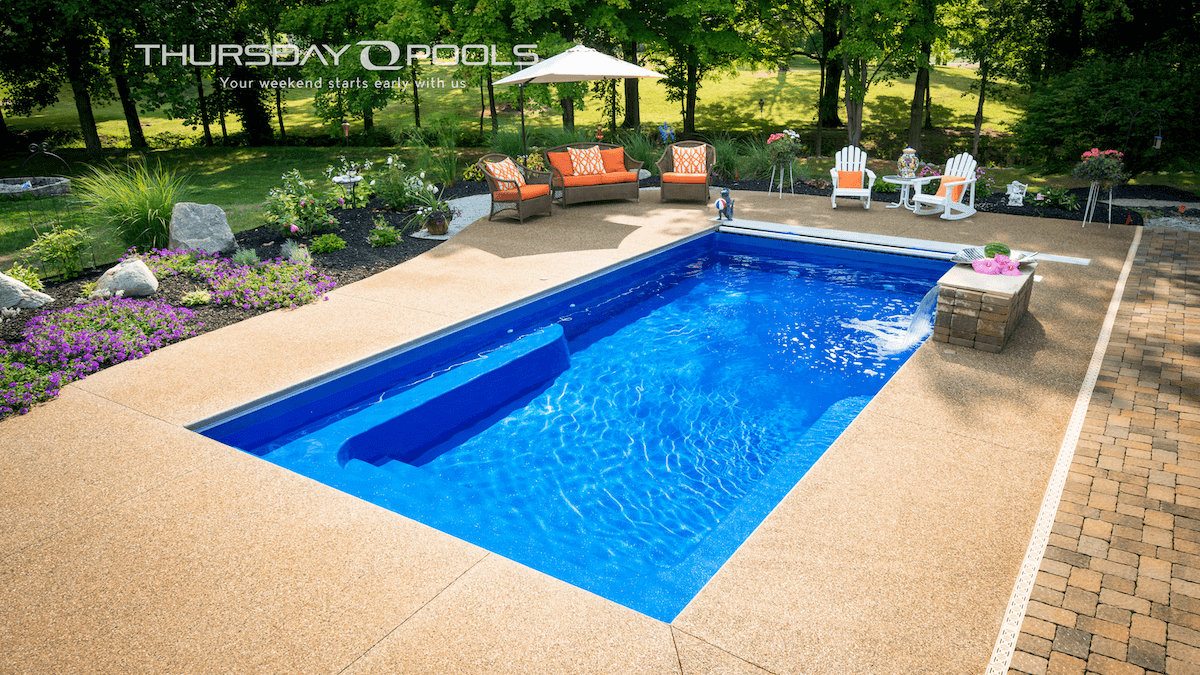
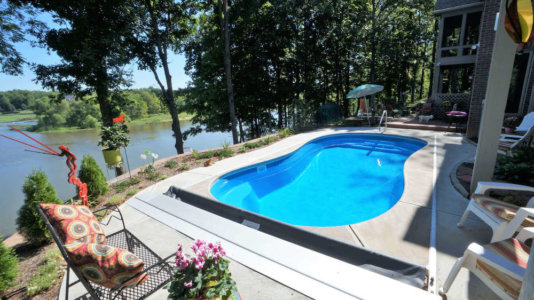 Is a Small Pool Worth It?
Is a Small Pool Worth It?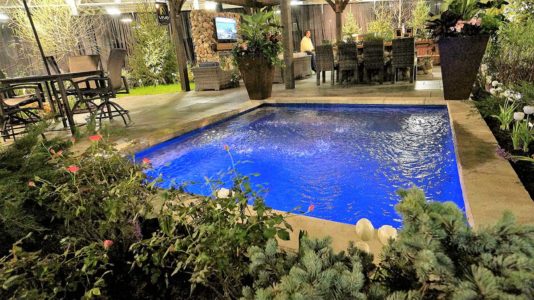
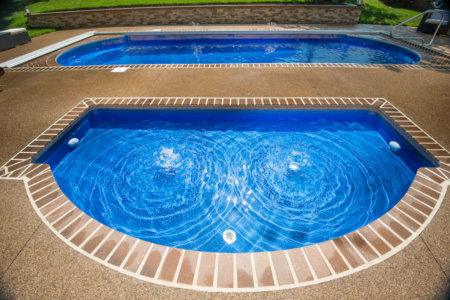
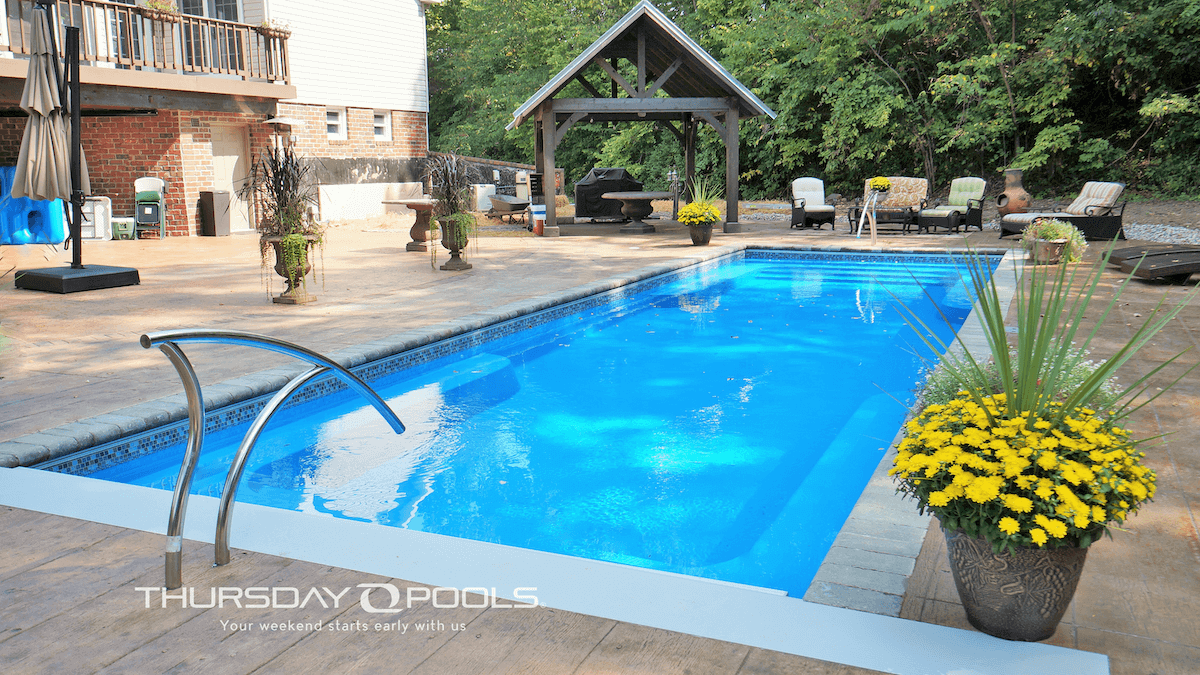
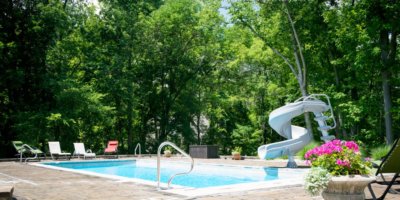 The Goliath is big on style and functionality. Offering the best of both worlds, Goliath provides plenty of room for entertaining and swimming.
The Goliath is big on style and functionality. Offering the best of both worlds, Goliath provides plenty of room for entertaining and swimming.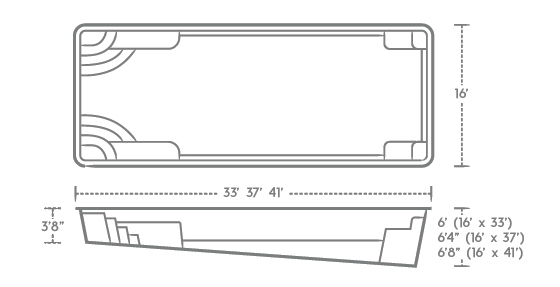
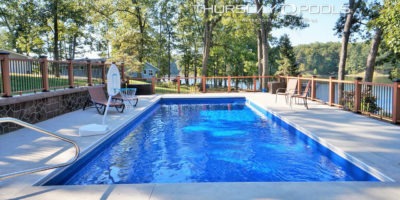 Monolith is the only Type One diving pool design in Thursday Pools’ collection and is suited for pool owners looking to take a plunge, float and relax.
Monolith is the only Type One diving pool design in Thursday Pools’ collection and is suited for pool owners looking to take a plunge, float and relax. 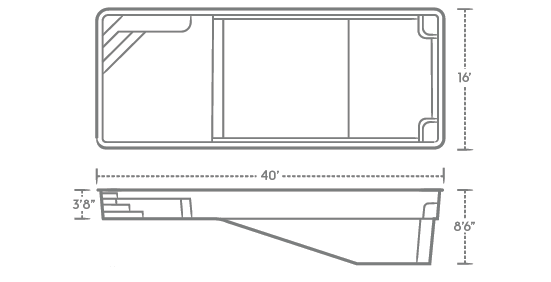
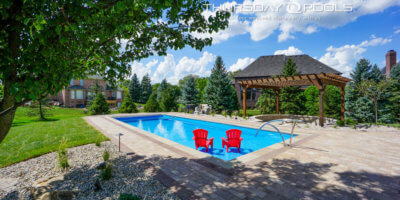 The Aspen is a best-seller with
The Aspen is a best-seller with 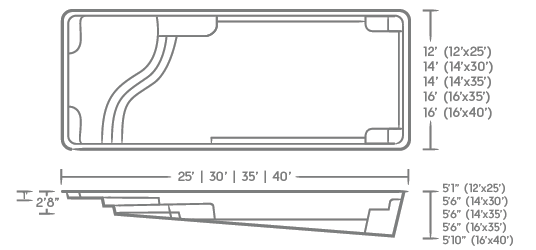
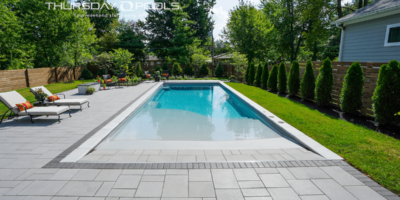 Thursday Pools’ beach entries (Patent US 10,472,839) are
Thursday Pools’ beach entries (Patent US 10,472,839) are 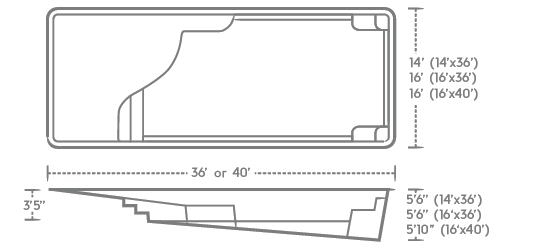
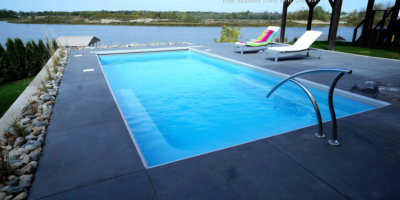 Lil Bob is perfect for games and the swimmers who are content to watch the action from the wet sideline. A standing depth, flat bottom design with two 12-foot-long benches helps Lil Bob keep things sporty and social.
Lil Bob is perfect for games and the swimmers who are content to watch the action from the wet sideline. A standing depth, flat bottom design with two 12-foot-long benches helps Lil Bob keep things sporty and social.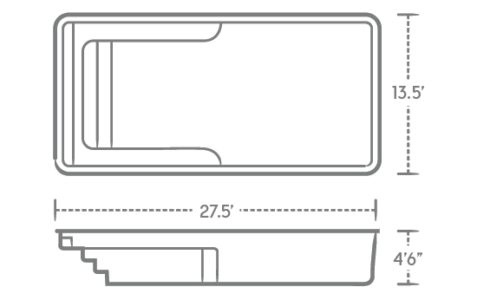
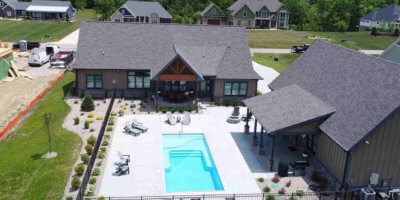 Lil Bob LX is an extended version of Lil Bob, designed to include a tanning ledge and wading area with integrated bench seating. Everyone can find a favorite spot in Lil Bob LX.
Lil Bob LX is an extended version of Lil Bob, designed to include a tanning ledge and wading area with integrated bench seating. Everyone can find a favorite spot in Lil Bob LX.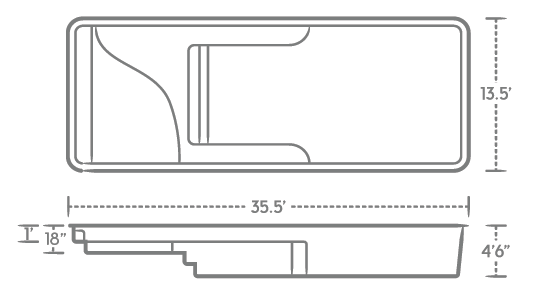
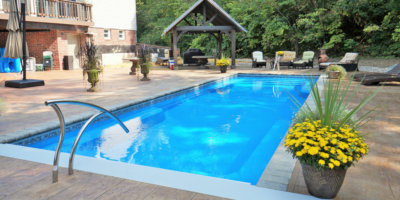 Spirit appeals to social butterflies, swimmers of all ages, and water activity lovers.
Spirit appeals to social butterflies, swimmers of all ages, and water activity lovers.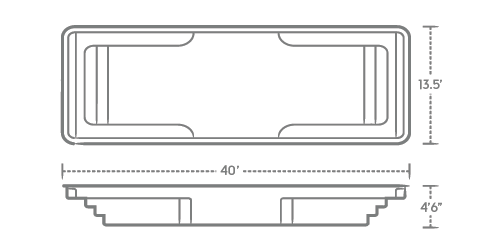
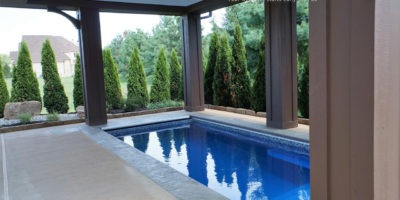 While it is a smaller pool, Sea Turtle is still big fun. Perfect for smaller yards, Sea Turtle gives you swim and play space and can accommodate therapy jets.
While it is a smaller pool, Sea Turtle is still big fun. Perfect for smaller yards, Sea Turtle gives you swim and play space and can accommodate therapy jets.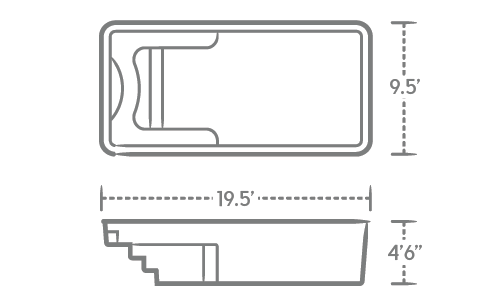
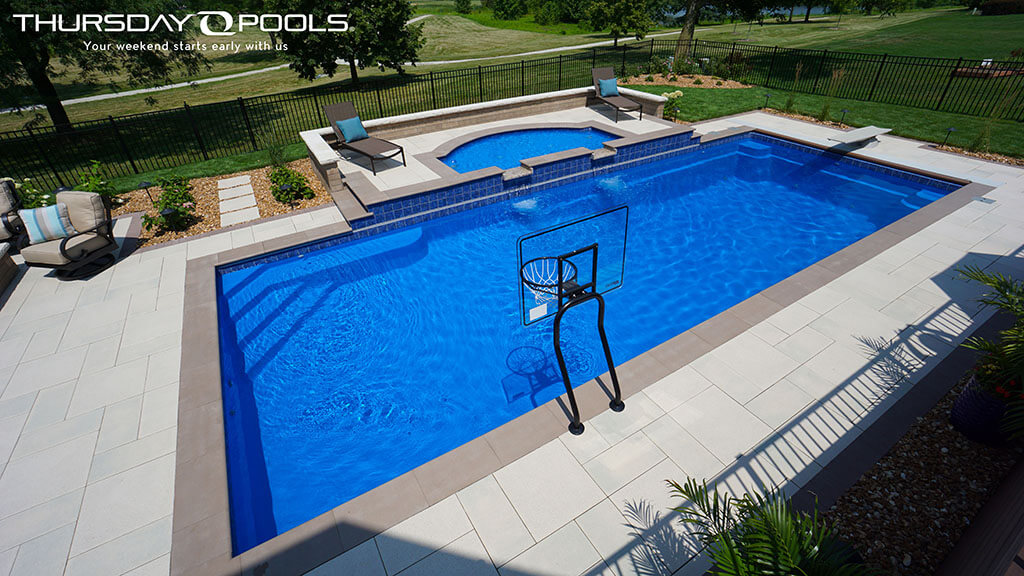
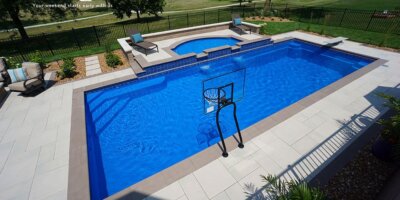
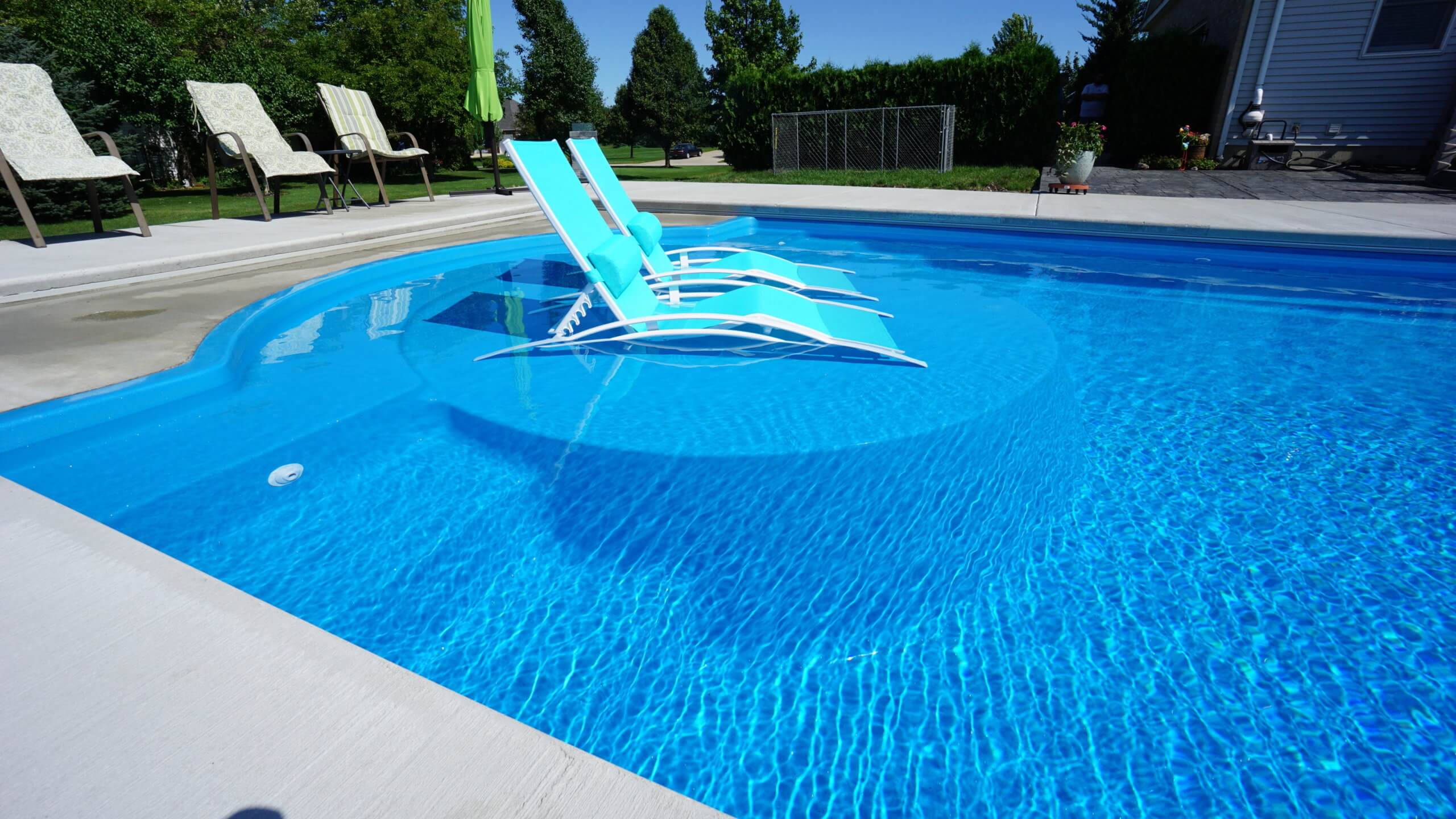
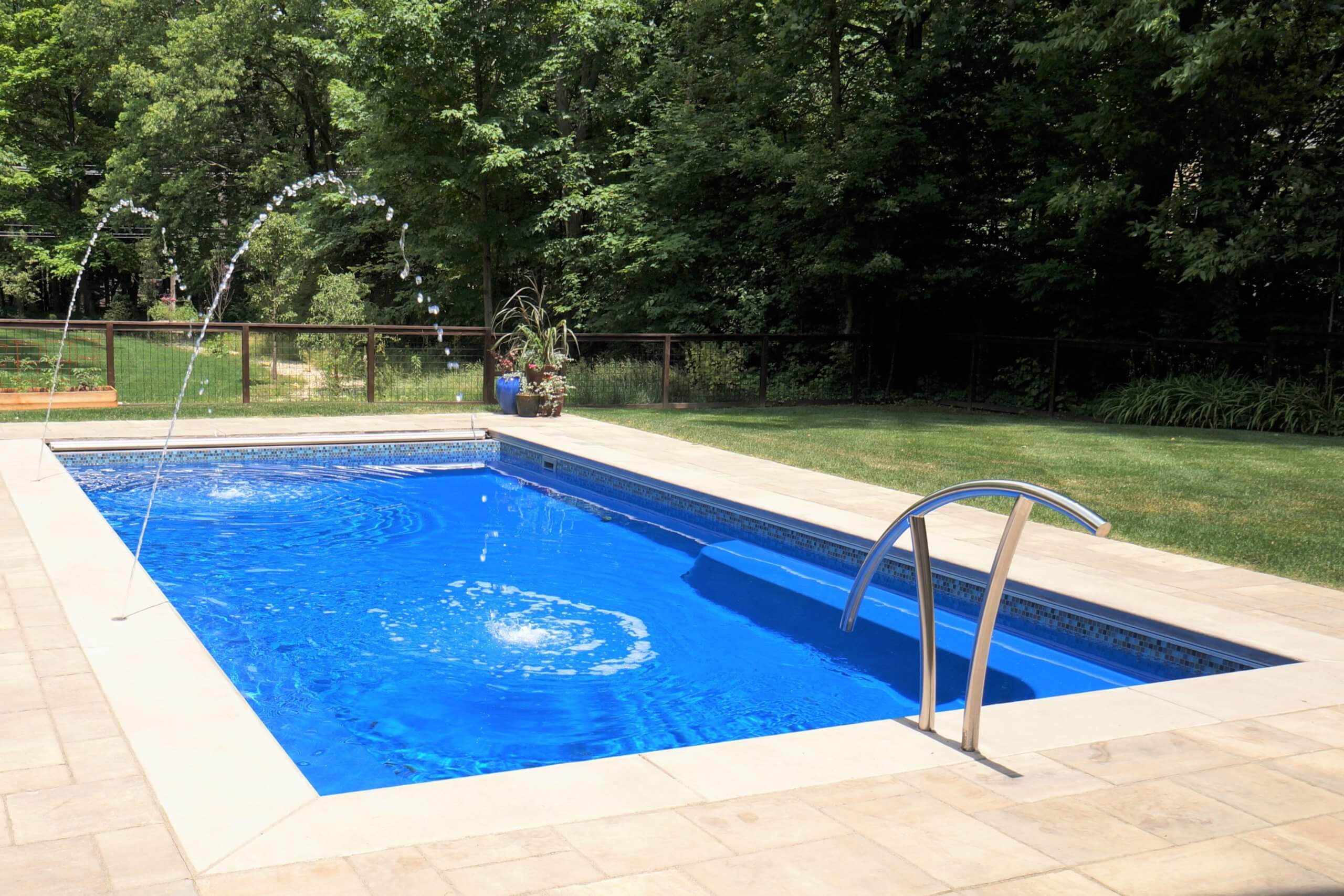
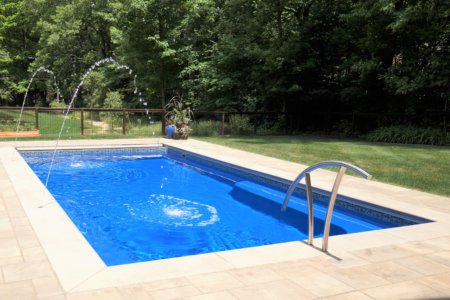 Understanding how much a small
Understanding how much a small 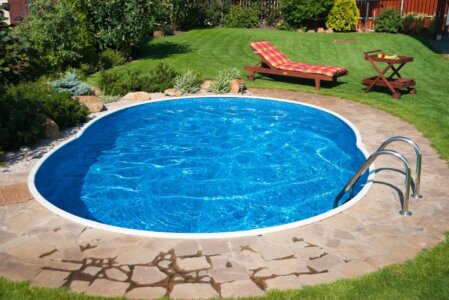 As of 2025,
As of 2025, 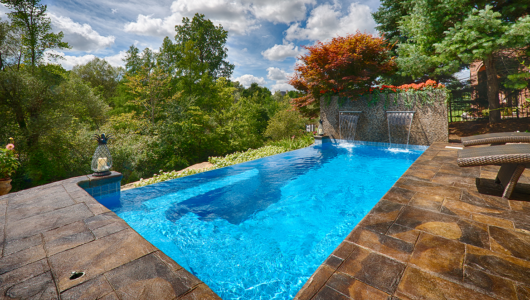 Inground fiberglass pool costs typically begin around an average $2,000 per foot of pool length. For example, the
Inground fiberglass pool costs typically begin around an average $2,000 per foot of pool length. For example, the 